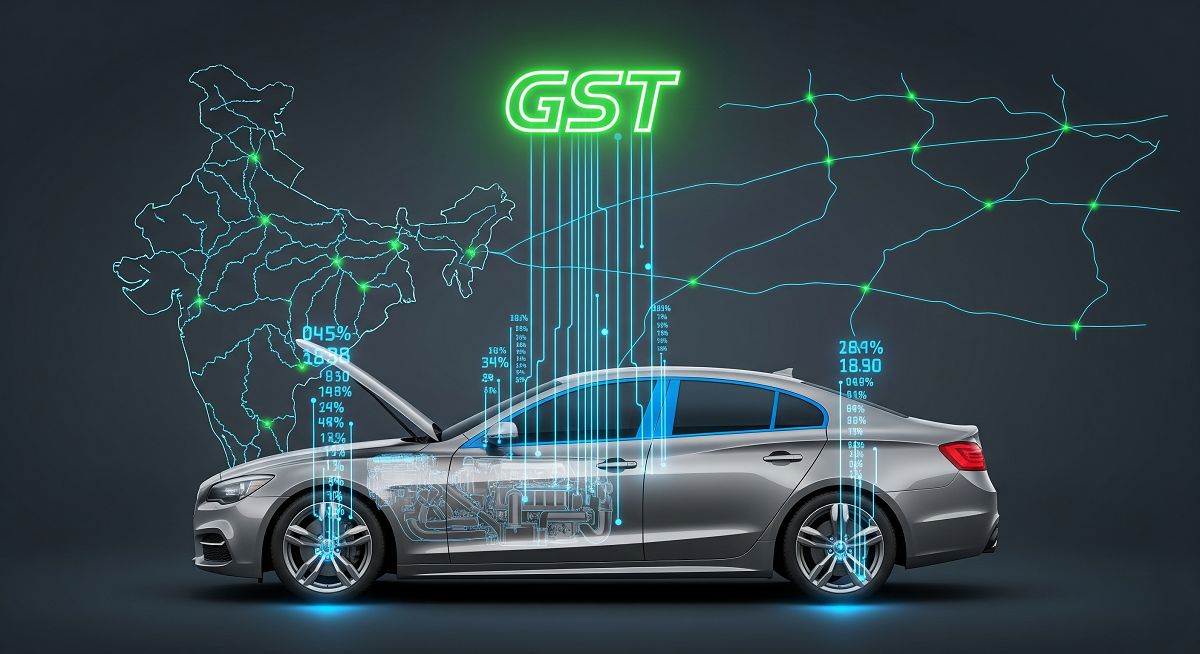India’s Goods and Services Tax (GST) system has undergone significant reforms, particularly affecting the automobile sector. Effective from September 22, 2025, the revised GST rates aim to simplify taxation and impact vehicle pricing across the country.
New GST Rates for Cars
The GST Council has introduced a three-tier tax structure:
- 18% GST: Applicable to small cars with engine capacities up to 1,200 cc for petrol/LPG/CNG and up to 1,500 cc for diesel, and a length not exceeding 4,000 mm.
- 40% GST: Imposed on larger vehicles, including SUVs and luxury cars, irrespective of engine capacity.
- 5% GST: Maintained for electric vehicles to encourage eco-friendly transportation.
This restructuring eliminates the previous 28% GST plus cess, simplifying the tax calculation process for consumers and manufacturers alike.
Impact on Car Prices
The revised GST rates have led to significant price reductions in various car segments:
- Compact Cars: Models like the Hyundai Creta and Maruti Suzuki Swift have become more affordable due to the 18% GST rate.
- SUVs and Luxury Cars: While these vehicles now attract a 40% GST, the removal of additional cess has made them relatively more affordable compared to the previous 50% tax incidence.
- Electric Vehicles: Continued at a 5% GST, maintaining their cost-effectiveness and encouraging adoption.
Manufacturers are passing on the benefits to consumers. For instance, Tata Motors has announced price cuts of up to ₹1.55 lakh on models such as the Nexon and Harrier, effective from September 22, 2025.
Expert Opinions
Industry experts view the GST overhaul as a positive move for the automotive sector. The simplification of tax slabs is expected to boost consumer demand and streamline manufacturing processes. The reduced tax burden on small cars is anticipated to make personal mobility more accessible to a broader segment of the population.
What This Means for Consumers
The revised GST rates offer several benefits to consumers:
- Lower Vehicle Prices: Direct reduction in car prices, making them more affordable.
- Simplified Tax Structure: Easier understanding of applicable taxes, leading to transparent pricing.
- Encouragement of Eco-friendly Choices: Continued incentives for purchasing electric vehicles.
Consumers are advised to check with local dealerships for the updated prices and to take advantage of the festive season promotions.
FAQs
A1: The new GST rates for cars will be effective from September 22, 2025.
A2: Savings vary by model. For example, Tata Motors has announced price cuts of up to ₹1.55 lakh on select models.
A3: Yes, electric vehicles continue to attract a 5% GST, maintaining their cost-effectiveness
Sources:
Hindustan Times
NDTV
JagranJosh









